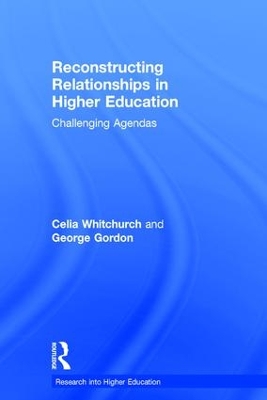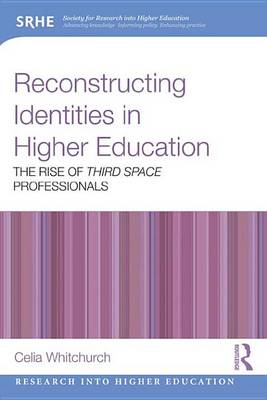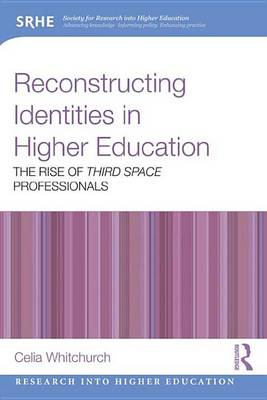Research into Higher Education
3 total works
Reconstructing Relationships in Higher Education
by Celia Whitchurch and George Gordon
Drawing on two international research projects, Reconstructing Relationships in Higher Education: Challenging Agendas looks behind formal organisational structures and workforce patterns to consider the significance of relationships, particularly at local and informal levels, for the aspirations and motivations of academic faculty. In practice, and day-to-day, such relationships can overlay formal reporting lines and therefore inform, to a greater or lesser extent, the overall relationship between individuals and institutions.
As a result, from an institutional point of view, relationships may be a critical factor in the realisation of strategy, and can in practice have a disproportionate effect, both positively and negatively. However, little attention has been paid to the role that they play in understanding the interface between individuals and institutions at a time of ongoing diversification of the workforce. For instance, they may provide space, which in turn may be implicit and discretionary, in which negotiation and influence can occur. In this context, Reconstructing Relationships in Higher Education also reviews ways in which institutions are responding to more agentic approaches by academic faculty, particularly younger cohorts, and the significance of local managers, mentors and academic networks in supporting individuals and promoting career development.
The text, which examines the dynamics of working relationships at local and institutional level, will be of interest to senior management teams, practising managers at all levels, academic faculty, and researchers in the field of higher education.
Reconstructing Identities in Higher Education: The Rise of 'Third Space' Professionals
by Celia Whitchurch
Reconstructing Identities in Higher Education: The Rise of Third Space Professionals draws on studies conducted in Australia, the United Kingdom and the United States to explore the roles and identities of a growing number of staff associated with broadly based institutional projects such as student life and welfare, widening participation, learning support, community partnership, research and business partnership, and institutional research. Thus, at the same time as professional staff are acquiring academic credentials, some academic staff are moving in a more project-oriented direction. This has effectively created a Third Space between professional and academic spheres in which lateral interactions, involving teams and networks, occur in parallel with formal institutional structures and processes, and give rise to new forms of management and leadership. Yet such developments have tended to occur 'under the radar', and have not been fully articulated.
The concept of Third Space is offered as a way of exploring the knowledges, relationships, legitimacies and languages that characterise those who work in less boundaried roles, and the implications of these developments for both individuals and institutions. The ability to problematise and accommodate a series of paradoxes and tensions, for instance between formal and more open-ended structures and relationships, would appear to be at the heart of working in Third Space. Individuals also grapple with the fact that Third Space can, at one and the same time, be a safe haven for experimentation and creativity, and also a risky space in which there is likely to be contestation and uncertainty.
The text is addressed to professional and academic staff who, by design or default, for long or short periods, find themselves working in Third Space environments; to those to whom such staff may be responsible, including senior management teams; and also to researchers interested in changing identities in higher education.


